According to lawyer Truong Trong Nghia, when the State reclaims land, it needs to compensate people spiritually because they have to relocate their houses, trees, memories, and family.
Discussing the draft Land Law (amended) in the National Assembly on the morning of June 9, lawyer Truong Trong Nghia (Ho Chi Minh City Bar Association) commented that the compensation price when the State reclaims land has begun to approach the market. However, no matter how much the compensation price is, "it may not solve the problem".
"Many times the State calculates and values that piece of land at 500 million VND and compensates 700 million VND, thinking that is too good, but besides the compensation price, there are other factors such as ethnicity, spirituality, and the familiar living environment of the people," Mr. Nghia analyzed.
The draft states that when people have their land reclaimed, they will be guaranteed a new place to live that is equal to or better than their old place. This, according to Mr. Nghia, is difficult to measure in terms of money and must take into account many other factors. The Civil Code allows for compensation for material and spiritual damages, so he suggests that the draft Land Law should also take into account spiritual compensation for people whose land is reclaimed.
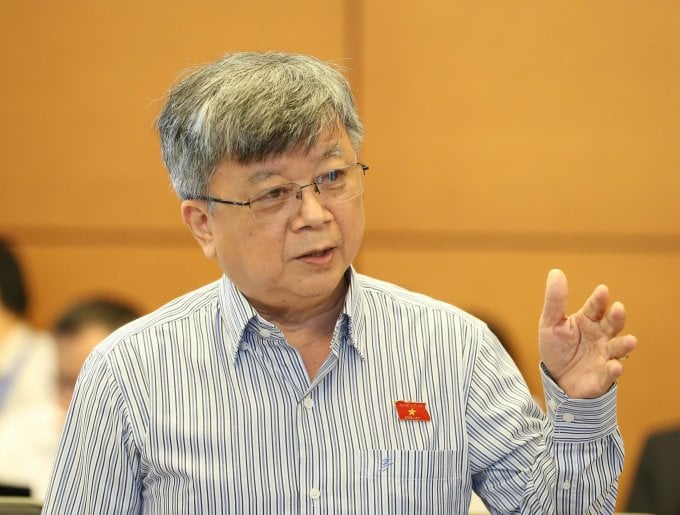
Lawyer Truong Trong Nghia. Photo: National Assembly Media
Chairman of the Ho Chi Minh City People's Committee Phan Van Mai asked the drafting committee to institutionalize Mr. Nghia's proposal - spiritual compensation for people whose land was confiscated. "There must be adequate compensation, support, and resettlement so that people can also benefit from future projects on their former land," Mr. Mai said.
Many resettlement areas are uninhabited due to cultural differences.
In Ha Giang , Minister of Natural Resources and Environment Dang Quoc Khanh said that compensation policies must focus on people's lives after resettlement, with technical and social infrastructure, ensuring production and livelihoods. Resettlement needs to be linked to community culture. "In reality, people do not return to many resettlement areas because they do not match their cultural identity," said Mr. Khanh.
Therefore, he proposed that the bill stipulate principles and decentralization to localities because the needs of each household are very diverse. Some people want compensation in the form of land, but others live with their children so they only take money. The policy in the law "does not necessarily require resettlement", the important thing is that after the recovery, they maintain their livelihood and have a stable life.
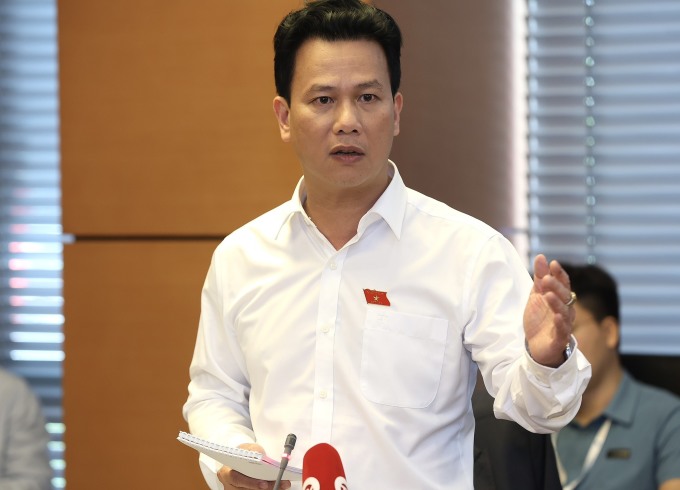
Minister of Natural Resources and Environment Dang Quoc Khanh. Photo: Hoang Phong
The former Secretary of the Ha Giang Provincial Party Committee suggested that the drafting agency should focus on vocational training and job conversion for people whose land has been revoked. The draft also needs to pay attention to ensuring the lives of the elderly, children, and the disadvantaged. "The law sets out a framework of requirements, goals, and objectives, but local authorities must participate in implementation," Mr. Khanh stated his opinion.
Proposal for the National Assembly to vote on the provision of land recovery by the State
Assessing that the drafting committee has accepted and revised the regulations on land recovery, however, Associate Professor Pham Khanh Phong Lan (Head of the Ho Chi Minh City Food Safety Department) still worries that "these regulations are not thorough and will be difficult to resolve the problem of people's complaints," she said.
According to the female delegate of Ho Chi Minh City, when the country is at peace and economic opportunities open up, land prices will increase. A part of the private sector participating in the land sector will find loopholes to corrupt officials - for personal gain, not for the common good. "Does the State need to step in to reclaim land? The fact that authorities at all levels have to mobilize forces to reclaim and enforce land is more harmful than beneficial. There are many other ways to develop the economy without such suffering," Ms. Phong Lan wondered.
She assessed that listing cases of land recovery as in the draft would be easily abused, because "there will be excess, shortage, and questions about why this project is recovered, and that project is not."
Based on the above argument, delegate Pham Khanh Phong Lan proposed that the National Assembly separate the provision on the State's land acquisition for national and public interests so that the National Assembly can vote and accept it by majority vote. "We will be responsible for this decision," she emphasized.
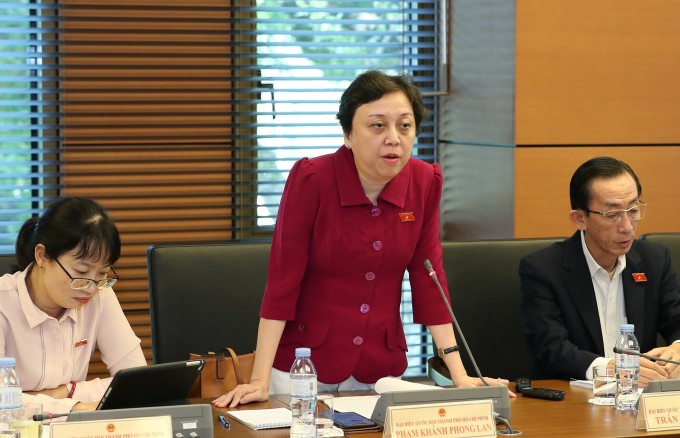
Associate Professor Pham Khanh Phong Lan. Photo: National Assembly Media
Sharing the same view with Ms. Lan, Mr. Truong Trong Nghia said that in reality, there are many projects that are not directly for national or public interest but for commercial purposes. For decades, complaints and grievances have been related to land acquisition. Meanwhile, Resolution 18 of the Central Committee on land policy states "continuing to implement the mechanism of self-negotiation between people and enterprises in transferring land use rights to implement urban and commercial housing projects".
According to the draft of the Land Law (amended), compensation, support, and resettlement when the State reclaims land must ensure that people are compensated for damage to land, property attached to land, and investment costs on land; damage due to suspension of production and business; supported with vocational training and job search, supported with stabilizing life, production, and resettlement; and given priority in choosing the form of compensation in cash if needed.
The resettlement area must complete the conditions of technical infrastructure and synchronous social infrastructure according to the detailed planning approved by the competent authority; must be consistent with the cultural traditions and customs of the residential community where the land is recovered.
Written by Tuan - Son Ha
Source link



![[Photo] Keep your warehouse safe in all situations](https://vphoto.vietnam.vn/thumb/1200x675/vietnam/resource/IMAGE/2025/10/1/3eb4eceafe68497989865e7faa4e4d0e)







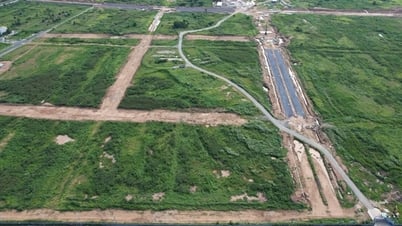




























![[Photo] President of the Cuban National Assembly visits President Ho Chi Minh's Mausoleum](https://vphoto.vietnam.vn/thumb/1200x675/vietnam/resource/IMAGE/2025/10/1/39f1142310fc4dae9e3de4fcc9ac2ed0)






















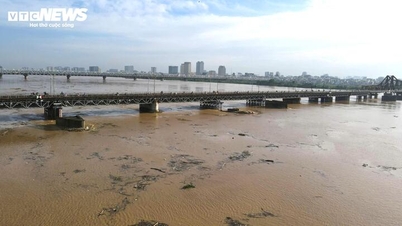


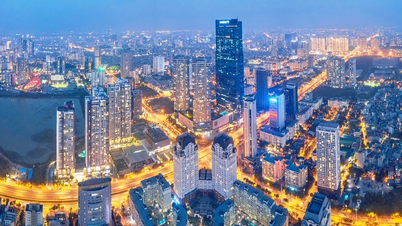










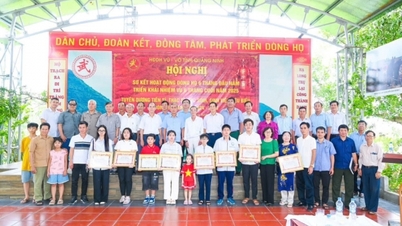



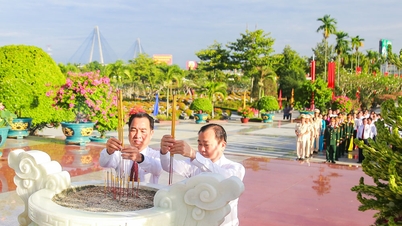



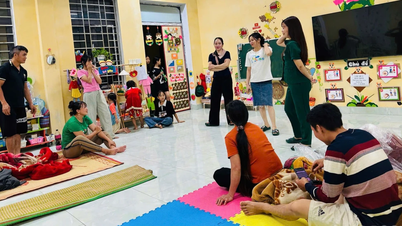
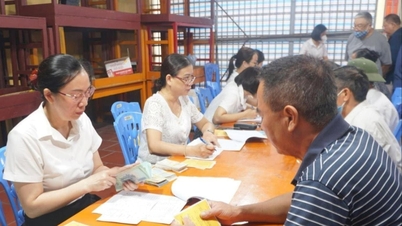















Comment (0)